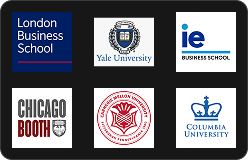
Top MEM Schools in Canada: Your Guide to the Best Programs for 2025
Top MEM Schools in Canada: Your Guide to the Best Programs for 2025Thinking about mixing your engineering background wi…
Table of Contents

When you hear University of Toronto, what comes to mind? Excellence, innovation, and a global reputation, right?
Well, you're absolutely right!
The University of Toronto (U of T) is one of the world's top universities, with a proud history that stretches back to 1827. Over the decades, it has consistently ranked among the best, renowned for groundbreaking research, academic rigor, and a vibrant, multicultural environment. Especially in engineering and technology, U of T leads the way with its interdisciplinary focus and future-forward mindset.
So, where does the Master of Engineering Management (MEM) fit into all of this?
The University of Toronto MEM program is a powerful blend of technical mastery and business leadership. It’s designed for engineers and tech professionals who don't just want to build solutions, they want to lead the teams that drive innovation and manage complex projects on a global scale.
Graduates of the U of T MEM program are prepared for strategic, high-impact roles across a range of industries, including technology, manufacturing, consulting, finance, healthcare, and even emerging sectors like AI and sustainable energy. Think of it as your launchpad into senior leadership with a rock-solid engineering foundation at its core.
Choosing the right Master of Engineering Management (MEM) program can define your future career path. So, what makes the University of Toronto MEM stand out in a crowded field? Let’s dive into the highlights that make this program a top choice for ambitious engineers around the world.
At its core, the University of Toronto MEM program is a bridge between engineering, business, and technology management.
Here, you're not just crunching numbers or designing products, you're learning how to lead teams, manage projects, and make critical business decisions that drive innovation.
One of the program’s biggest strengths is its collaboration across different faculties, including the Faculty of Applied Science & Engineering and, in some cases, the prestigious Rotman School of Management.
This unique interdisciplinary approach ensures you gain both technical depth and business acumen, a rare and powerful combination in today’s competitive world.
When you enroll at U of T, you learn from the best in the business.
The MEM program offers access to notable professors and researchers who are not just excellent teachers but also global leaders in engineering, management, and innovation.
You’ll also have opportunities to participate in cutting-edge research initiatives and industry-sponsored projects.
Whether it’s the latest in AI, sustainable technologies, or tech entrepreneurship, you’ll be at the forefront of what's next.
Fun Fact:
Many U of T professors are consistently ranked among the top 1% most cited researchers globally!
At the University of Toronto, the world truly is your classroom.
The student body is incredibly diverse, with bright minds from across 150+ countries.
This global environment means you’ll not only solve problems with a local lens but also learn how to tackle global engineering and business challenges with multidisciplinary strategies.
The MEM curriculum emphasizes critical thinking, collaboration, and innovation — skills that are essential for success in any part of the world.
Ready to get your foot in the door with top employers?
The University of Toronto MEM program has strong partnerships with leading tech companies, consulting firms, manufacturing giants, and emerging startups.
You’ll benefit from:
From tech powerhouses like Google and IBM to consulting leaders like McKinsey and Deloitte, the University’s career services and alumni network open up a world of possibilities.

The University of Toronto MEM program offers a curriculum designed to shape technically strong engineers into future-ready business leaders. With a dynamic mix of core courses, electives, and hands-on projects, the program ensures you graduate with a skill set that's both technically sharp and strategically sound.
Every MEM student at the University of Toronto builds a strong foundation through a carefully crafted set of core courses.
These subjects cover the essential skills needed to manage technology-driven businesses successfully.
Key areas include:
One of the standout features of the University of Toronto MEM program is its flexibility.
You can tailor your degree by choosing from a wide range of electives, allowing you to specialize in emerging areas like:
Want even more options?
You can also take interdepartmental electives from other prestigious U of T faculties like the Rotman School of Management, the Faculty of Computer Science, or the School of the Environment making your learning experience truly interdisciplinary.
Theory is important but practice makes perfect.
That’s why the University of Toronto MEM program culminates in a Capstone Project or Research Thesis.
Here’s what you can expect:
The Capstone Project isn't just an assignment it’s often the stepping stone to your next big career move!
Wondering how long it takes to earn your University of Toronto MEM degree?
Here’s a quick breakdown:
Study Mode | Typical Duration | Details |
Full-Time | 1–2 years | Ideal for recent graduates or those looking to study intensively. |
Part-Time (if offered) | 2–3 years | Suitable for working professionals needing more flexibility. |
If you are planning to apply to the University of Toronto MEM program, it is important to understand the full admission process. Here is a detailed guide to help you prepare.
Before you begin your application, make sure you meet the University of Toronto MEM program’s eligibility requirements:
Even if GRE scores are optional, a high score can strengthen your application.
Your application to the University of Toronto MEM must include several important documents:
Applying on time is very important when applying to the University of Toronto MEM.
Application Round | Deadline | Details |
| Early Round | November – December (previous year) | Better chance for scholarships and faster decisions. |
| Final Round | February – March | Last chance for Fall admissions. |
If your application is strong, you may be invited to an interview. Interviews may happen online or in person. This helps the admissions team understand your communication skills, leadership ability, and program fit.
Tips for the Interview:
Practice answering questions about teamwork, leadership, and problem-solving before your interview.
Studying at the University of Toronto MEM program is a smart investment in your future. However, it is important to understand the full costs and plan your finances carefully.
The total tuition fee for the University of Toronto MEM program depends on whether you are a domestic or international student.
Student Type | Estimated Tuition (Full Program) | Notes |
| Domestic Students | CAD $30,000 – $35,000 | For Canadian citizens and permanent residents |
| International Students | CAD $60,000 – $65,000 | For students from outside Canada |
Other Fees to Consider:
Always review the latest fee schedule on the official University of Toronto website before applying, as fees can change each year.
The University of Toronto MEM program offers a few financial awards to help reduce your education costs.
Students can also apply for external scholarships offered by organizations like:
How to Apply for Scholarships:
Some University of Toronto MEM students may qualify for graduate assistant roles such as:
Benefits:
These opportunities are competitive and may not be guaranteed for every student.
If scholarships and assistantships are not enough, there are several other funding options.
Toronto is one of the more expensive cities in Canada, so careful financial planning is important for success.

Graduating from the University of Toronto MEM program does more than give you a degree — it opens the door to exciting career opportunities across many industries. Let’s take a closer look at how the program supports your professional growth.
The University of Toronto provides strong career services to help MEM students succeed in the job market.
Students can access:
Career support does not stop after graduation. Many services are available to alumni as well.
The University of Toronto MEM program believes that real-world experience is just as important as classroom learning.
Students benefit from:
These experiences make students better prepared for the job market and often lead directly to job offers.
The University of Toronto has one of the largest and most influential alumni networks in the world.
Building relationships through the alumni network often leads to career growth well beyond the first job.
After completing the University of Toronto MEM program, students move into a wide range of leadership and management roles.
Common Career Paths:
Industries Hiring MEM Graduates:
Hiring trends show that MEM graduates are valued for their ability to solve complex technical problems while managing teams and driving business success.
Life at the University of Toronto MEM program is about much more than classes and lectures. Students become part of a vibrant, diverse community in one of the world’s most exciting cities. Let’s explore what campus life is like.
The University of Toronto has three campuses, each offering a different experience:
Students at all campuses enjoy a culturally rich, inclusive academic community. There are plenty of extracurricular opportunities for students to grow outside of the classroom.
The University of Toronto MEM program encourages students to build leadership and innovation skills outside of academics.
Opportunities include:
Joining clubs and events helps students expand their network, build skills, and add real-world experiences to their resumes.
Living in Toronto brings students close to a world-class mix of culture, recreation, and professional opportunities.
Housing Options:
Approximate Living Expenses (Monthly):
Expense Category | Estimated Cost (CAD) |
| Rent (shared apartment) | $800 – $1,200 |
| Food and Groceries | $300 – $500 |
| Transportation (public transit) | $130 |
| Personal Expenses | $200 – $300 |
| Health Insurance | $60 – $100 |
City Life in Toronto:
Toronto is safe, diverse, and very student-friendly.
The University of Toronto takes student well-being seriously. A wide range of services are available to support both academic success and personal health.
Key resources include:
Students have everything they need to succeed, both inside and outside the classroom.
Choosing the University of Toronto MEM program gives students many important advantages. From a strong reputation to location benefits, the program offers everything needed to build a successful career in engineering management.
The University of Toronto is known around the world for academic excellence. Its degrees are respected by employers everywhere.
A degree from the University of Toronto adds value to your resume and opens doors across industries.
Students in the University of Toronto MEM program have access to some of the best research and learning spaces in the country.
Learning at U of T means using tools and working in environments that lead the future of technology and business.
One of the biggest advantages of studying at the University of Toronto is the location itself.
Living in Toronto connects students to one of North America’s most important business and technology hubs.
The University of Toronto MEM program does more than build technical skills. It helps students become future leaders.
Graduates leave the program ready to lead engineering teams, manage operations, and drive innovation in their organizations.

The University of Toronto MEM program offers students the best of both worlds — strong technical knowledge and essential management skills. The program’s curriculum combines engineering expertise, business leadership, and an entrepreneurial way of thinking.
By studying at one of the top universities in the world, students gain access to outstanding professors, advanced research centers, and a global network of peers and alumni.
Graduates of the University of Toronto MEM program are ready to succeed in fast-moving, technology-driven industries. Whether you want to manage projects, lead engineering teams, launch a new business, or move into executive roles, the program gives you the tools to make it happen.
If you are interested in applying to the University of Toronto MEM, now is the time to take action.
Here are a few steps to help you prepare:
